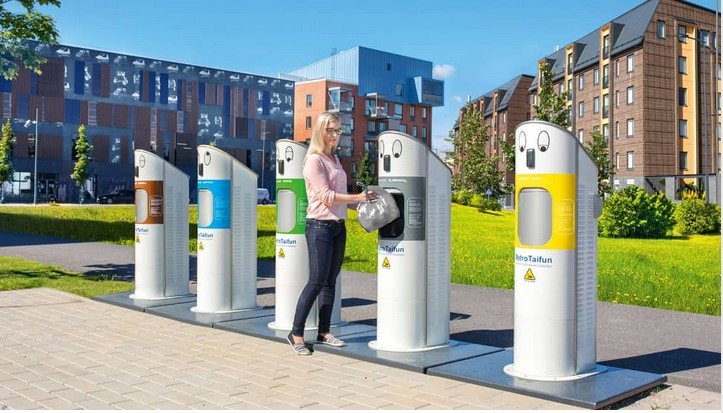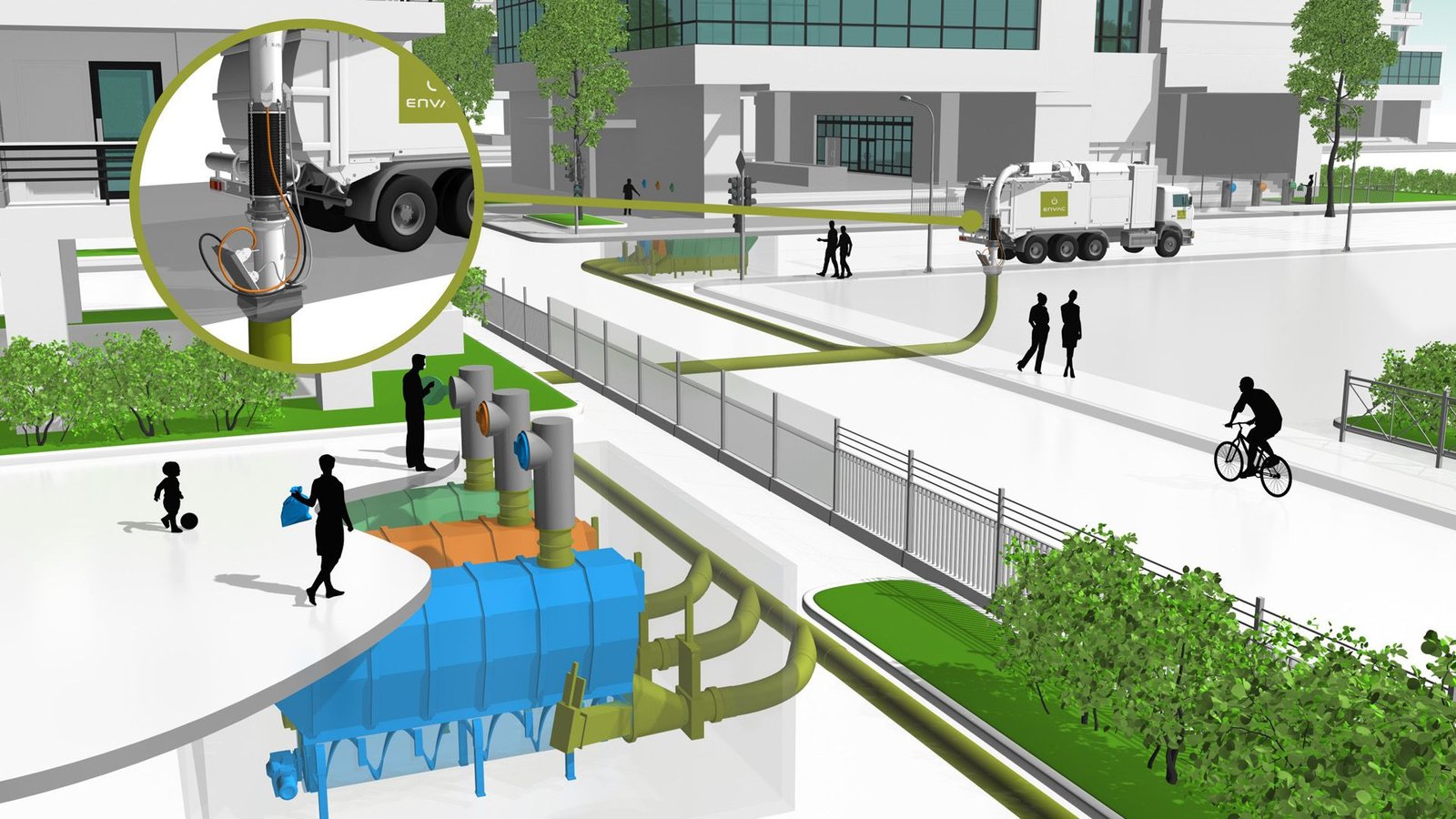Cities worldwide are adopting smart waste management solutions to improve efficiency, reduce environmental impact, and optimize resources. Smart technologies, such as IoT sensors, data analytics, and AI-powered systems, allow cities to manage waste more intelligently and sustainably. Let’s explore how these innovations are transforming urban waste management.

Using IoT Sensors for Waste Collection
Cities are integrating IoT sensors into waste bins to track waste levels in real-time. These sensors monitor when bins are full and send data to a centralized system, allowing waste management teams to plan collection routes more efficiently. This system reduces the need for unnecessary collection trips, saving fuel and lowering emissions.
By using smart bins equipped with IoT sensors, cities ensure that waste collection happens only when necessary. This method also prevents overflowing bins, leading to cleaner streets and improved public hygiene. Waste management teams can optimize routes and schedules, reducing operational costs and improving overall efficiency.
Data-Driven Decision Making
Smart waste management relies heavily on data-driven decision-making. Cities collect data from IoT sensors, GPS tracking, and AI algorithms to analyze waste collection patterns, identify problem areas, and predict future waste generation.
This data allows city planners to make informed decisions about waste management strategies. For example, they can identify which neighborhoods produce the most waste and allocate resources accordingly. By analyzing historical data, cities can predict peak waste periods and prepare for them in advance, ensuring that waste collection services run smoothly.
AI-Powered Waste Sorting
Artificial intelligence plays a crucial role in automating waste sorting processes. Smart waste management facilities now use AI-powered robots to sort recyclables from non-recyclables with high precision. These robots identify materials using advanced sensors and machine learning algorithms, improving recycling rates and reducing contamination in recycling streams.
AI-powered sorting systems ensure that waste is properly processed, increasing the amount of recyclable material recovered. This technology reduces the reliance on manual labor and enhances the efficiency of recycling facilities, contributing to a more sustainable waste management system in cities.
Optimizing Waste Collection Routes
Smart waste management solutions optimize waste collection routes using real-time data from IoT sensors and GPS tracking systems. Cities can monitor waste bin levels and adjust collection routes based on the actual demand. This optimization reduces fuel consumption, lowers emissions, and saves time for waste management teams.
Dynamic routing ensures that waste collection vehicles only visit full bins, minimizing the number of trips needed and reducing the environmental impact of waste collection operations. This approach makes waste management more sustainable and cost-effective for cities.
Reducing Environmental Impact
Smart waste management solutions significantly reduce the environmental impact of urban waste collection. By using data to optimize routes and schedules, cities cut down on fuel consumption and emissions. Smart sorting technologies also ensure that more waste is recycled, diverting it from landfills and reducing the carbon footprint of waste management.
Moreover, smart waste systems help cities implement waste reduction programs by providing insights into consumption patterns. By identifying areas with high waste production, city planners can launch awareness campaigns and implement initiatives to encourage recycling and waste reduction.
The Future of Smart Waste Management
The future of smart waste management lies in greater integration of AI, IoT, and data analytics. Cities will continue to adopt advanced technologies that allow for real-time monitoring and predictive analytics, ensuring that waste management systems operate more efficiently.
In addition, smart waste management systems will play a vital role in creating circular economies, where waste is reused and recycled rather than sent to landfills. As cities embrace smart technologies, they will move closer to achieving zero-waste goals and fostering more sustainable urban environments.
Conclusion
Smart waste management solutions offer cities a way to optimize waste collection, improve recycling rates, and reduce environmental impact. IoT sensors, AI-powered systems, and data analytics drive these innovations, making waste management more efficient and sustainable. As technology advances, cities will continue to benefit from smarter, more eco-friendly waste management practices.




